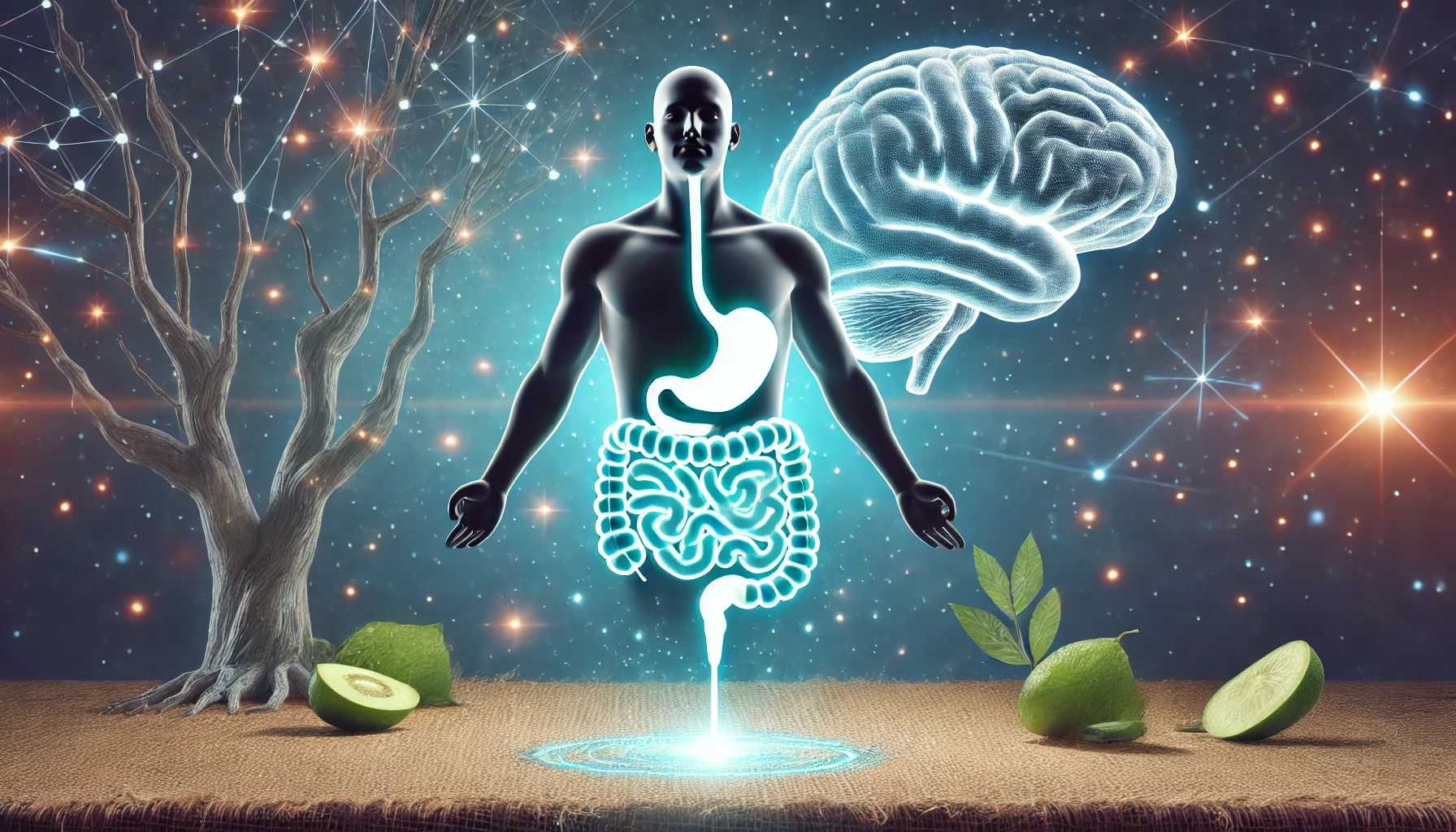The saying “trust your gut” may be more scientifically accurate than we once thought. Recent research has revealed a strong connection between gut health and mental well-being, showing that the digestive system does much more than just process food. In fact, the gut is often called the “second brain” due to its direct influence on mood, emotions, and cognitive function.
But how does gut health affect mental health? And what can we do to improve both?
In this article, we’ll explore the gut-brain connection, how gut bacteria impact emotions, and strategies to support both digestive and mental health.
1. Understanding the Gut-Brain Connection
1.1 What Is the Gut-Brain Axis?
The gut-brain axis is the two-way communication system between the digestive system and the brain. This connection happens through:
- The Vagus Nerve – A direct communication highway between the gut and the brain.
- Neurotransmitters – The gut produces serotonin, dopamine, and GABA, which affect mood and emotions.
- The Microbiome – Trillions of bacteria in the gut influence brain function and mental health.
1.2 The Role of the Gut Microbiome
The gut microbiome consists of good and bad bacteria that impact:
- Mood and mental clarity – A healthy microbiome supports emotional stability and cognitive function.
- Stress response – Imbalances in gut bacteria can increase anxiety and depression.
- Inflammation levels – Poor gut health leads to chronic inflammation, which is linked to mental health disorders.
2. How Poor Gut Health Affects Mental Health
2.1 Increased Anxiety and Depression
- An unhealthy gut reduces serotonin production, leading to mood disorders.
- Imbalances in gut bacteria have been linked to higher stress levels and emotional instability.
2.2 Brain Fog and Cognitive Issues
- Poor gut health can cause memory problems, difficulty concentrating, and low energy.
- The gut microbiome influences neurotransmitters that control focus and alertness.
2.3 Sleep Disruptions
- An imbalance in gut bacteria affects melatonin production, making it harder to sleep.
- Poor digestion can lead to nighttime discomfort and disrupted sleep cycles.
3. How to Improve Gut Health for Better Mental Well-Being
3.1 Eat a Gut-Friendly Diet
- Fermented foods (yogurt, kimchi, kefir) provide beneficial probiotics.
- Prebiotic-rich foods (bananas, onions, garlic) feed good gut bacteria.
- Avoid processed foods and artificial sweeteners, which harm the microbiome.
3.2 Reduce Stress to Support Digestion
- Chronic stress disrupts gut bacteria and increases inflammation.
- Practices like meditation, deep breathing, and yoga help maintain gut balance.
3.3 Stay Hydrated
- Water supports digestion, nutrient absorption, and toxin elimination.
- Dehydration leads to constipation and gut imbalances.
3.4 Get Enough Sleep
- The gut and brain synchronize through sleep cycles.
- Poor sleep reduces beneficial gut bacteria, worsening mood disorders.
3.5 Consider Probiotic Supplements
- If diet alone isn’t enough, high-quality probiotics can restore gut balance.
- Consult a professional to choose the right probiotic strain.
4. Overcoming Gut Health Challenges
4.1 “I Experience Frequent Digestive Issues”
- Identify food triggers by keeping a food journal.
- Slowly incorporate fiber and probiotics into your diet.
4.2 “I Struggle with Sugar Cravings”
- An imbalance in gut bacteria can cause cravings for processed foods.
- Increase fiber intake to support beneficial bacteria.
4.3 “I Feel Stressed and It Affects My Digestion”
- Practice mindful eating to reduce stress-related digestive issues.
- Engage in relaxation techniques before meals.
5. The Long-Term Benefits of a Healthy Gut for Mental Well-Being
- Enhanced mood stability and reduced anxiety.
- Better focus, memory, and cognitive function.
- Stronger immune system and overall well-being.
Final Thoughts
Your gut health plays a crucial role in your mental and emotional well-being. By improving digestion through a balanced diet, stress management, and proper hydration, you can enhance both physical and mental health.
Start today—incorporate gut-friendly foods and mindful habits into your routine for a healthier brain and body!

